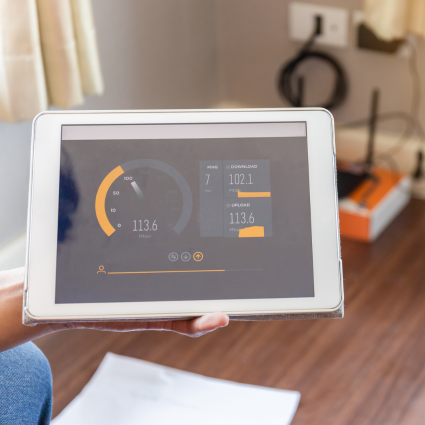We will continue our discussion on supporting and monitoring Digital Experience Monitoring (DEX) for remote UCaaS/CCaaS agents, this time focusing on Genesys, one of the competitors of Five9, 8×8 and Ring Central that we covered in the past.
These companies offer various products and services, including real-time voice and chat communication for end customers. Across multiple industries, including healthcare, insurance, and consumer goods, companies employ thousands of call center agents to offer best in class customer support. However, remote agents often face the challenge of poor network connectivity, which can result in subpar customer support. In such cases, agents need to contact corporate IT to resolve their connectivity issues before they can resume work.
IT staff usually have to coordinate with agents over the phone or shared screen to offer support, and usually it’s a manual process that costs both reputation points to the company and lost productivity for the agents and IT staff.
Genesys Troubleshooting
Poor network connectivity is a common challenge faced by UCaaS/CCaaS agents. In our previous posts about Five9, 8×8, and Ring Central, we found that each company provides clear documentation, guidelines, and recommended tools to help their customers detect and resolve connectivity issues. By leveraging these resources, companies can ensure that their remote agents have reliable network connectivity, which ultimately leads to improved customer service.
For example, Ring Central has a public test server that agents can use to measure latency, jitter and packet loss from their laptops. They give specific recommendations in terms of acceptable measures (e.g. latency less than 150 ms one way) to avoid poor voice quality.
Genesys has a similar tool that is available for end users. They call it WebRTC Diagnostics and runs a series to a specific cloud region (e.g. US West, Canada, London, etc). The output looks like this:
This is similar to other approaches we’ve seen from other vendors. Although it’s easy to use and gives a great breakdown of the network connectivity components (e.g., latency, jitter, packet loss), it suffers from the same issues:
- Reactive: the test is performed only after having issues to test their network.
- Ad Hoc: the test is performed ad hoc, and there is no historical baseline.
- Monitoring: unable to detect issues early before they spread and escalate.
The NetBeez Approach to Genesys Agent Monitoring
Genesys provides a list of cloud platform network connectivity diagnostic endpoints that can be used to test against. They cover all major geographical areas such as US East/West, Canada, South America, Europe, Asia, Africa. They also give examples on how to use some well known netcat and nmap to test whether required ports are open. In addition those endpoints respond to ICMP so they can be used to measure latency, jitter, packet loss and MOS score from Genesys’ WebRTC diagnostic tool.
All these can be done with NetBeez, by installing our software on the agent’s laptop and run those diagnostic tests continuously building baselines, setting alerts thresholds, and being alerted when something goes wrong. In addition, the data is enhanced by metrics such as the laptop’s CPU/memory utilization, WiFi signal strength, and gateway packet loss and latency.
Troubleshooting Genesys with NetBeez
Below is how it looks like when I run tests from my laptop to all the Genesys diagnostic end points in the US (West and East 1,2). In addition, a ping test to my home router measures my WLAN performance.
Laptop monitoring Genesys testing endpoints in the US together with local gateway
I am based in CA, and here is my latency, jitter, packet loss and MOS to and US East and West Genesys endpoints:
Comparison of East vs. West latency, jitter, packet loss, MOS for an agent based in CA
As expected, my latency to their West coast endpoint is almost half than the one on the east coast.
When it comes to troubleshooting, our software also collects data about the WiFi MCS, signal strength and noise historical performance:
Historical WiFi performance (Rx/Tx rates, Signal Strength, Link Quality, Connection/Disconnection timeline)
When it comes to troubleshooting the NetBeez Path Analysis gives hop-by-hop information about the traffic flow form the user’s laptop to Genesys’ testing endpoints:
Path Analysis shows the traffic flow from the user’s laptop to Genesys testing endpoints.
Conclusion
Ensuring that remote UCaaS/CCaaS agents have reliable network connectivity is crucial for providing high-quality customer support. Although Genesys provides a tool to diagnose network connectivity issues, it suffers from the same problems as other reactive and ad hoc approaches, such as being unable to detect issues before they escalate. By leveraging tools like NetBeez, companies can continuously monitor and proactively address network connectivity issues. They can build baselines, set alert thresholds, and receive alerts when something goes wrong. With proper monitoring and support in place, companies can ensure that their remote agents have reliable network connectivity, which leads to improved customer service and, ultimately, a better customer experience.





